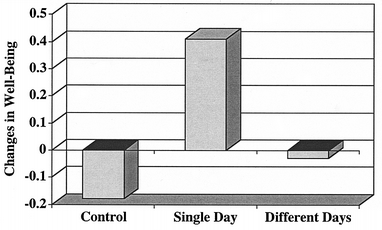Two Ways
There are two ways to live life:
1) like a fast lottery ticket – by having one-time-payoff goals and going after them, and
2) like a squirrel gathering for the winter – by surely and consistently going after your plans.
Here are some arguments for the benefits of consistency. Sure, the lottery ticket is a draw – it is exciting, it is potential, and it can be huge! The squirrel, however, will always make her nest for the winter.
The Lottery Ticket. A friend of mine is a film reviewer. (I love dance movies: you name me a dance movie, and I’ve probably seen it!) My film-reviewer friend and I were talking about dance movies recently, and he said, “Senia, doesn’t it seem that most dance movies give the performer one chance or one performance or one try-out, and that that is the one that counts? And that things better be right for that one dance because it’s the one big chance?” And I thought about it, and he’s right – typically, dance movies are structured towards one dance or one night or one show or one try-out. It’s the lottery ticket – it’s the one chance to get things right. It’s what everything in your past training as a dancer has been moving you towards.
So you give it your all. And that’s the right thing to do. But it’s so hard to live life that way, anticipating one big hit every several years, and other than that, barely eeking by. It’s possible, but so hard. As Hugh MacLeod says (via Dave Seah’s post), “If your biz plan depends on you suddenly being “discovered” by some big shot, your plan will probably fail.” Living the lottery ticket is looking for big breaks all the time – looking for the job in which in a couple of years you can make enough money to retire, looking for the business contact that will bring in the company’s annual revenue for the entire year in January, looking for the book publisher who’ll love your idea for a novel and want to make it into a major motion picture.
The Squirrel. On the other hand, “slightly, lightly, and politely,” as I once heard a guy say at a dance club, the squirrel gets things done. She knows that she doesn’t have all summer to play, and so she builds and gathers for the winter. And the squirrel may be able to get even more things done while she rushes with the winter preparations. Yes, the lottery ticket is exciting. At the same time, a lottery ticket may not pay the bills. And if it does take 10 years to become successful at something, or if it takes 10,000 hours, then YES, start now, and consistently work at it. Just like after college, in your first job, some folks show you the benefits of investing early into a retirement account – that it is the amounts you put in earlier that reap the greatest gains later – just like that, the consistent attention to your chosen activity reaps the greatest gain from consistency. Just ask anyone who plays an instrument. Putting it down for a year definitely moves you back a bit.
There are two brief stories that illustrate the squirrel’s deliberate life of consistency:
The Fisherman
The story goes that a business school student was on his spring break in a small fishing village, and saw one fisherman who seemed to be more efficient than all the other fishermen. He watched him day after day, and just before returning to school, he approached the fisherman and said, “I’ve been watching you, and your catch is larger than all the other fishermen. I think if I help you out, we could get a few more boats out here, and you could train me and my friends, and we could make a lot of money very fast, and then, just think, you could retire very soon.” The fisherman just looked at him. And the business school student continued, “Just think, if you could retire, what would you do?” And the fisherman replied, “I would fish.”
“Sew a Little at Night”
There was a man who was the main tailor to the king, but one day a genie came to him and told the man that he would now be rich beyond all his beliefs, and the king would let him go as his servant because the king would have a tailor who could do things magically for the king, and that the man was free to go and enjoy his life. The man thought that was fine. Then the genie asked him, “What will you do all the day long now that you don’t have any cares and now that you have all the money that you want?” The man answered that he would live a relaxed life during the day, including walking, reading, eating, and then, he added, “I would sew a little at night.”
It’s what he does well – he would “sew a little.” Plus, even at that point, a little more money wouldn’t hurt. Of course, both these tales are exaggerated tales that show two things: the benefit of doing what you like to do and the benefit of consistency. I bet you would argue with me, “Well, Senia, why wouldn’t I want to do both? Shoot for the lottery and keep consistently improving at what I’m doing?” Actually, YOU WOULD! That would be the ideal!
DO BOTH – Shoot for the Moon and Keep the Day Job
 |
One of my heroes in this sense is Dana Gioia (pronounced “JOY-a”). Dana Gioia has a Stanford MBA and worked for General Foods for 15 years, becoming a Vice President. Currently, he heads the National Endowment for the Arts, and here is his bio on the NEA site.
For years, Dana Gioia did both – published poetry books and worked a corporate job. I find that wonderful and incredible and inspiring. That’s the whole point. That’s what Hugh MacLeod means by “Keep your day job” and “Put the hours in.” |
Dana Gioia has been masterful on two levels – at work with a corporate managerial role and in his spare time with poetry. That’s incredible! That’s like a story I heard from my friend that you are what you do in your spare time. If you consistently work at a hobby (or work more at your job like most entrepreneurs) in your spare time, you will be good at it. You will be good – whether it’s guitar-playing or rock-climbing or golf or running or writing. Whatever you consistently do, you will be good at. There are other ways to push yourself to improve at your chosen activity (through incremental challenges, asking raw questions, etc.), but you are already good at it if you do it consistently.
I heard once that John Grisham wrote his first few legal thrillers by getting to his law firm at 5am and writing from 5 to 8am. That is consistency. That is perseverance.
“Perseverance is a great element of success. If you only knock long enough and loud enough at the gate, you are sure to wake up somebody.”
~ Henry Wadsworth Longfellow
You are sure to wake up somebody. Like the little squirrel who finishes all her preparations for the winter, and then goes to the store to buy a lottery ticket … just in case. Although her affairs are in order, she thinks, “Why not?”





